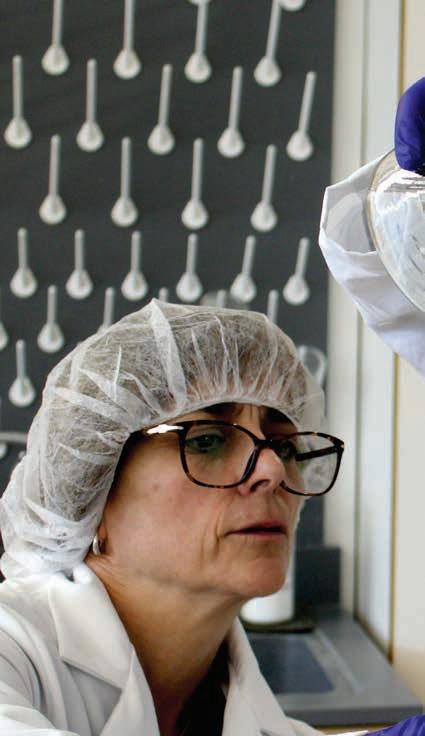
3 minute read
FACULTY
Preparing Tomorrow’s Leaders Brett Feret Named Pharm.D. Faculty Member of Year
Clinical Professor Brett Feret has been chosen by the Pharm.D. Class of 2020 as the Faculty/Staff Member of the Year.
The doctor of pharmacy students selected Dr. Feret because of “his leadership, service, and commitment to the students.” In addition to teaching as a clinical professor, Feret also serves as director of Experiential Education, overseeing the curriculum and implementation of introductory and advanced pharmacy practice experiences, including the service learning curriculum.
Ferret also coordinates the introductory pharmacy course for the first professional year students, and teaches immunization and self-care courses. He is also a pharmacy consultant for the Rhode Island Department of Health’s Center for Emergency Preparedness and Response.
Feret’s current research and practice interests include delivery and assessment of experiential education, the pharmacist’s role in emergency preparedness, self care, and immunization delivery.
College’s newest educators and researchers bring a wealth of worldly experience
Two of the newest professors in the College bring with them a wealth of experience at such prestigious institutions as the National Institutes of Health and the Karolinska Institute in Sweden, funded research into neurological anti-aging, and dynamic teamwork that extends beyond the lab into the home.
Professors Jaime Ross and Guiseppe Coppotelli met while completing their doctoral theses at the NIH. Discovering a mutual interest in neuroscience and anti-aging, the pair struck up a professional relationship that became personal, and the two married before heading together overseas.
It was in Stockholm where their professional teamwork expanded. Ross was studying aging of the central nervous system, specifically premature aging related to mitochondrial mutations. In need of a biochemistry expert to help dissect and analyze cells and tissue in the mouse brains she was using, Ross turned to
Making a Difference for Transformative Faculty
Philanthropy is essential to recruiting and retaining rising stars like Jaime and Giuseppe. With faculty size limited by state budgetary constraints, the College of Pharmacy has grown its faculty by 15% over five years with philanthropic resources from the Thomas M. Ryan Professorship, Hermann Professorship, Ernest Mario Distinguished Chair in Pharmaceutics and the Paramaz Avedisian Endowed Chair in Medical Organic Chemistry. This investment in talent led to the College’s #8 national ranking in federal research grants, rising from #10 the previous year.
Coppotelli, who jumped into a study the pair continue today. “We were already married, but that’s when we became scientifically married,” Ross said.

They continue their research into neurological aging, attempting to discover why aging seems to occur at different rates in different people. Is it their environment, diet or lifestyle, or is there more going on in their bodies at the cellular level? Their studies, supported by a $1 million K99-R00 grant, aims to discover the answers.
The pair take their team approach to URI, not just in the lab but also in the classroom. Coppotelli and Ross will teach NEU-262 in the spring, a course in cellular and molecular neuroscience research lab techniques that is part of the College’s new neuroscience undergraduate degree program. Given their varied experience, the two will be able to share their expertise in multiple branches of neuroscience.
“I’m really excited to be part of this course and to further our research,” Ross said. “We decided we can put our interests together and what we come up with could be really fun. In this course, students get hands-on experience in small groups, and get to learn the basics of the different methodologies of neuroscience that we both have expertise in.”






